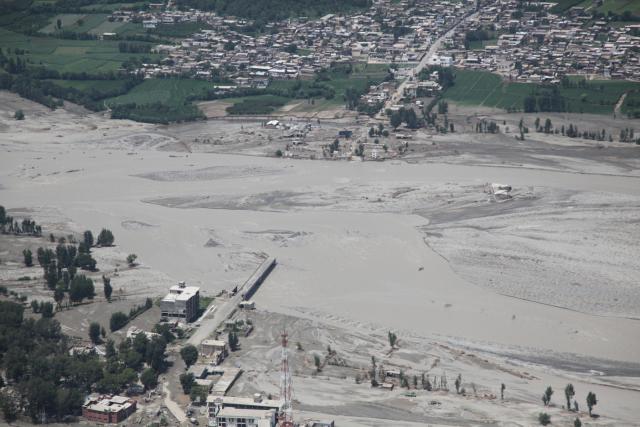U.N. Framework Convention on Climate Change Executive Secretary Christiana Figueres warned militaries this month that they should be spending more money to reduce carbon emissions. According to her, one of the biggest threats to nations right now is global warming.
President Obama recently asked Congress for $671 billion for the Department of Defense’s budget for fiscal 2012. The proposed budget (although currently facing cuts) allotted billions of dollars to fund wars in Iraq and Afghanistan, and billions more were requested for procurement; research, development, test and evaluation; operations and maintenance; military construction; personnel; family housing; and revolving management funds. While the Department of Defense has recently focused some attention on global warming, it’s time they start focusing a lot more.
Christiana Figueres’s biggest concern is that a growing food crisis, water stress, and weather damage will result in an international migration, regional conflicts, and ultimately a “climate chaos that would demand a defense response that makes even today’s spending burden look light.” Instead of investing in more weaponry, Figueres urges generals to invest in reducing carbon emissions.
The warning by Figueres matches recent reports of disturbing proportions. Just last week, UN projections revealed that in under ten years, the world will host 50 million environmental refugees. These are refugees that, true to Figueres’s predictions, are fleeing their homes due to drought, famine, and weather-related disasters.
Here’s a little connect-the-dots between climate change-related events and civil unrest. First, drought, famine, and weather-related disasters are all linked to climate change. Warmer winters allow pests to carry plant diseases, heavy rainfall washes animal waste into human food, greenhouse gases ruin the structure of a plant… these are just a few of many reasons that global warming will increasingly lead to food crises. There are now threats that “megadroughts” will also return due to man-made global warming. And weather-related disasters, such as storms and floods forcing villagers in regions like Bangladesh to migrate, are connected to global warming’s rising sea levels.
These climate change-related disasters will in turn lead to civil unrest. It is well-proven that famine, drought, and severe weather worsen or even create conflicts. One needs only look to recent events for evidence of this. The U.N. Food and Agriculture Organization suggest that food price hikes have recently contributed to political instability in Mozambique, Algeria, Tunisua, Egypt, and Yemen.
Drought in Somalia is believed to have exacerbated problems in an already unstable nation – even on a personal level, marriages were ruined by the drought. Nura Farah, a mother of seven children, blames the drought for her divorce, explaining to The Independent, “When the drought hit us we quarreled… I told my husband, ‘Look, you are a man. So go to town and look for ways to support your family’. But he rejected my request and divorced me and left.”
Lastly, severe weather has caused instability in regions like Pakistan, where, according to The New York Times, flooding displaced more than 20 million people this past summer. Denmark’s Defense Minister Gitte Lillelund reports that, “Because you have the flooding, the Pakistani government or society will use all their resources to deal with that – which could create room for extremists.”
In other words, climate change will lead to severe weather, droughts, floods, and increased famine, which in turn will result in greater civil unrest.
Figueres makes this threat most clear in the following statement: “It is alarming to admit that if the community of nations is unable to fully stabilize climate change, it will threaten where we can live, where and how we grow food and where we can find water. In other words, it will threaten the basic foundation – the very stability on which humanity has built its existence.”
The Department of Defense needs to focus their budget on fighting this preventable civil unrest and threat to global stability. As a citizen of any country, it is time to reconsider the definition of patriotism. It is not just tying a yellow ribbon around a tree – people who care about their national (and global) security should deem it equally patriotic to reduce their carbon footprint.
Subscribe to our newsletter
Stay up to date with DeSmog news and alerts







